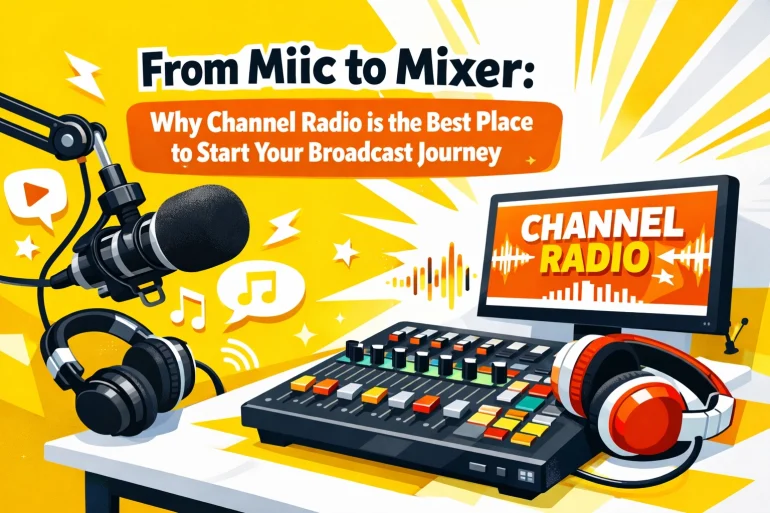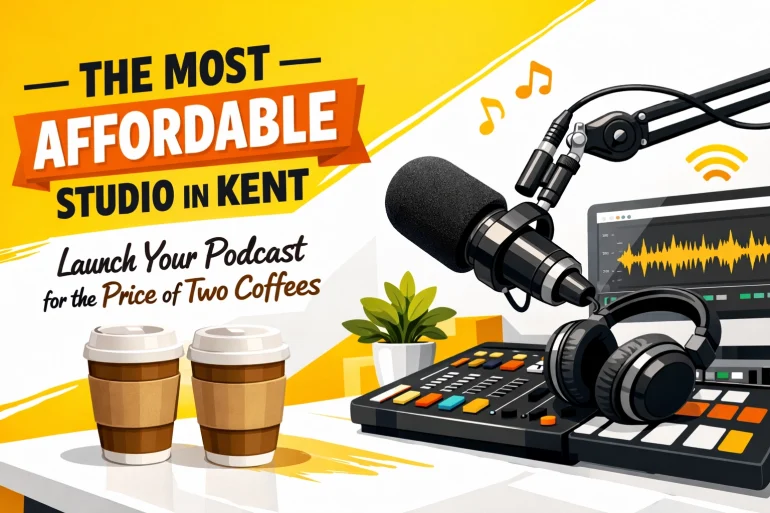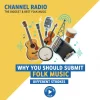-
 play_arrow
play_arrowChannel Player Channel Radio Web Player
The Kent Radio Host's Guide to Building Indie Radio Shows That Actually Connect With Listeners
today11/10/2025 10

Here's the brutal truth: Most indie radio shows fail because they're just playing music, not building relationships. You're not a jukebox. You're not Spotify with a voice-over. If that's all you're doing, you're wasting everyone's time: including your own.
Building a radio show that actually connects with listeners requires you to completely rethink what you're doing behind that microphone. It's not about having the coolest tracks or the slickest presentation. It's about becoming someone your listeners trust, someone they turn to for discovery, someone who understands their musical soul better than any algorithm ever could.
Let's fix that right now.
Stop Playing What Everyone Else Plays
You need to become a musical archaeologist, not a playlist repeater. While mainstream stations are spinning the same major-label releases that pluggers are pushing, you should be digging deeper. This means spending hours sifting through releases from independent labels, discovering DIY artists who don't have massive promotional budgets, and finding gems that your listeners won't hear anywhere else.
This isn't about being obscure for the sake of being different. It's about providing genuine value. When someone tunes into your show, they should know they're going to discover something they can't find on corporate radio or streaming algorithms. That's your competitive advantage: use it.
Quality beats quantity every single time. Don't fill your show with mediocre tracks just because they're independent. Your listeners are trusting you with their time. Honor that trust by being ruthlessly selective about what makes it to air.
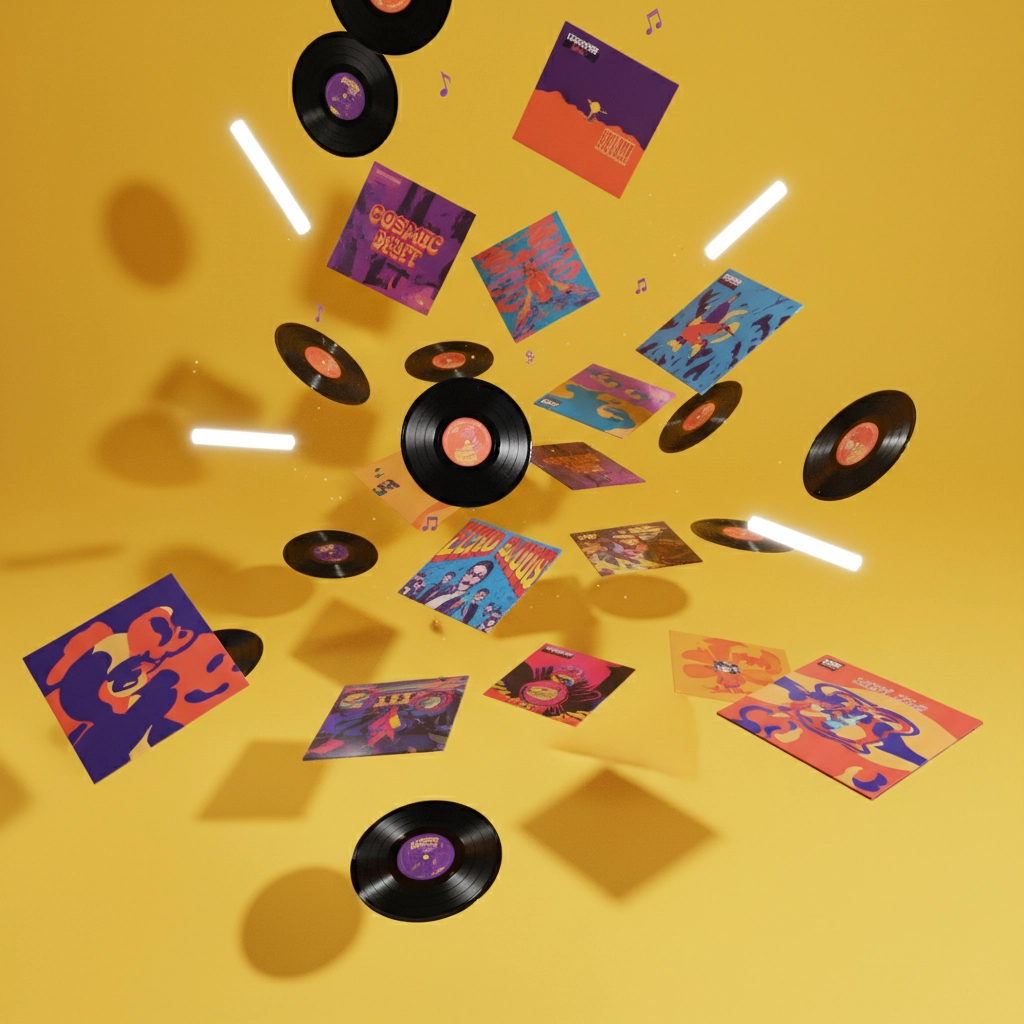
Build Community, Not Just Playlists
Your show should feel like a gathering of friends, not a broadcasting exercise. The most successful indie radio hosts create a sense of belonging that streaming services simply cannot replicate. Your listeners should feel like they're part of something bigger: a community of music lovers who share similar tastes and values.
This means engaging with your audience beyond just playing music. Share stories about the artists you're featuring. Explain why a particular track moved you. Create connections between songs that reveal your thought process. When listeners understand your musical journey, they'll follow you anywhere.
Make your show interactive. Encourage emails, social media engagement, and listener recommendations. When someone reaches out to thank you for introducing them to their new favorite band, read that message on air. Create a feedback loop that makes your audience feel heard and valued.
Remember that your community extends beyond passive listeners. When you support new artists through airplay, you're directly impacting record sales and concert attendance. Your listeners trust your recommendations enough to spend their money on the music you champion. That's real influence: don't take it lightly.
Champion the Underdog Artists Who Need You Most
Independent artists are drowning in a sea of algorithmic indifference, and you're their lifeline. Small labels represent dozens of acts with combined followings exceeding millions of people, yet these artists struggle to receive airplay on mainstream programming. This is where you come in.
Your role extends far beyond entertainment. You're providing essential infrastructure for the indie music ecosystem. Every time you play a track from a DIY artist, you're potentially changing their career trajectory. That's not hyperbole: that's responsibility.
Focus on quality over promotional budgets. The best music often comes from artists who can't afford expensive PR campaigns or major-label backing. Your ears, not their marketing budget, should determine what gets played on your show.
Support doesn't stop at airplay. Promote their live shows, mention their merchandise, and create opportunities for live sessions when possible. These small gestures have massive cumulative effects on an artist's ability to sustain their career.
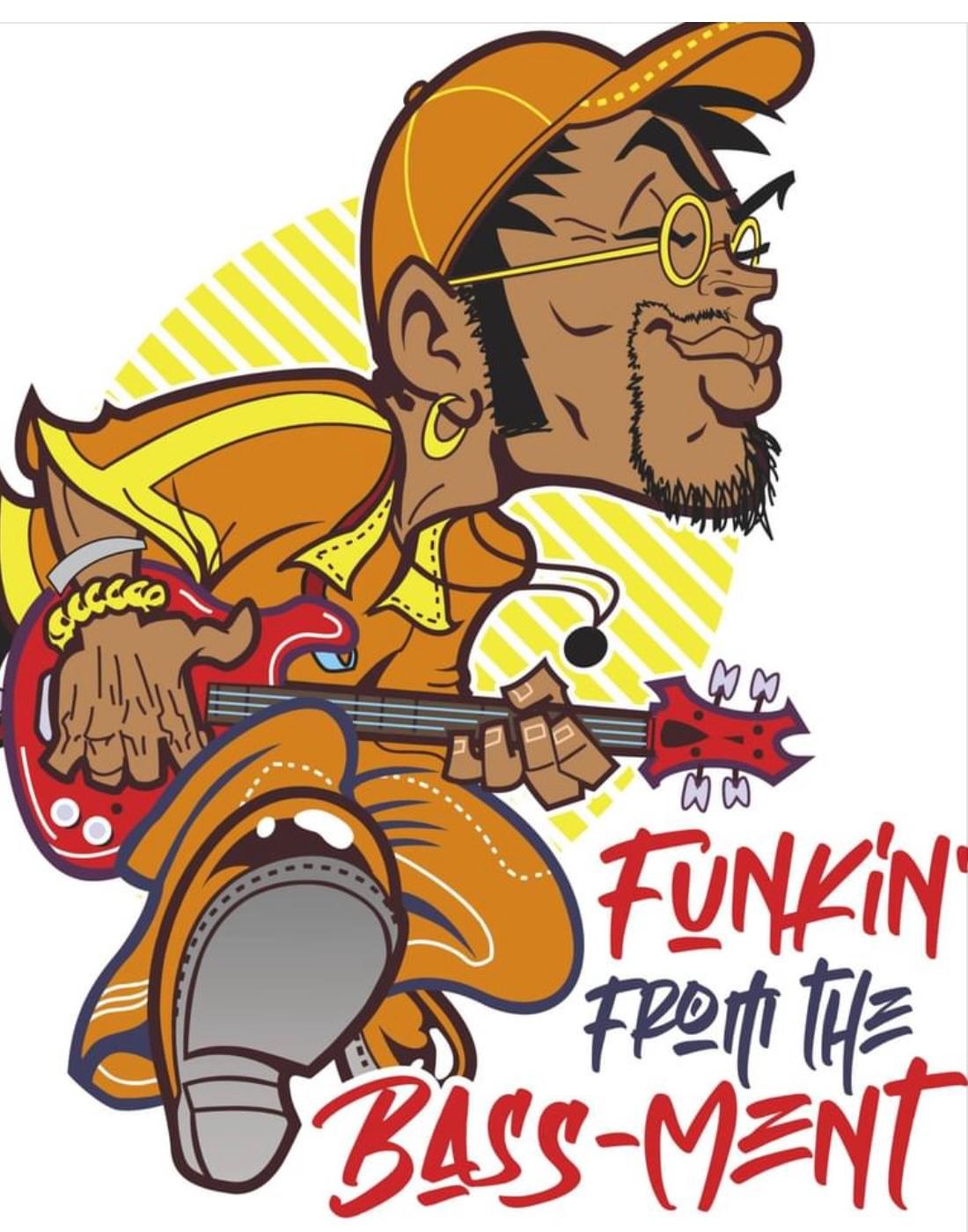
Develop Your Unique Voice and Perspective
Your personality is what separates good radio from forgettable background noise. Listeners don't just want to hear great music: they want to hear great music filtered through someone they find interesting, knowledgeable, and trustworthy.
This means developing strong opinions and being willing to defend them. Don't play it safe with generic commentary. If you think a particular genre is underrated, make that case passionately. If you believe certain mainstream trends are damaging to music culture, say so. Conviction creates connection.
Study the music you play. Understand the scenes, the influences, the historical context. Your listeners should learn something new every time they tune in. Whether it's the story behind a song, the connection between two seemingly unrelated artists, or your perspective on how current releases fit into broader musical movements, bring depth to every show.
Consistency in your voice doesn't mean being predictable. Surprise your audience with unexpected discoveries while maintaining the core identity that keeps them coming back.
Create Appointment Radio That Matters
If your show could disappear tomorrow and nobody would notice, you're doing it wrong. Your program should occupy a specific time and mindspace in your listeners' lives. They should arrange their schedules around your show because they know they'll miss something important if they don't tune in.
This requires treating each show as an event, not just another hour of airtime. Plan your programming thoughtfully. Create themes, tell stories, and build anticipation for upcoming segments. Make missing your show feel like a real loss.
Develop recurring segments that give your show structure and predictability while leaving room for spontaneity. Whether it's a weekly feature on local artists, listener dedications, or deep dives into specific genres, these elements create familiarity and loyalty.
Document your impact. Keep track of the artists you've championed who've gone on to bigger success. Share these stories with your audience. Prove that your show matters by showing the results.

Master the Art of Musical Storytelling
Every song has a story, and every show should tell a larger narrative. Random track selection might work for streaming playlists, but radio demands intentionality. The flow between songs, the connections you draw, and the emotional arc of your program separate professional radio from amateur hour.
Think cinematically about your show structure. Build tension, create release, establish themes, and provide resolution. Your audience should feel taken on a journey, not subjected to a random collection of tracks.
Use your voice strategically. Sometimes the most powerful moments happen in the spaces between songs. A perfectly timed piece of commentary or a moment of silence can be more impactful than any track selection.
Connect the dots for your listeners. Help them understand why you programmed certain songs together, what themes you're exploring, and how each artist fits into the broader conversation you're having about music and culture.
Turn Listeners Into Evangelists
Your most loyal listeners should become active promoters of your show. This doesn't happen by accident: it requires creating content so compelling that people can't help but share it with others.
Make your show quotable and shareable. Develop catchphrases, memorable segments, and moments that stick in people's minds long after the show ends. Give your audience reasons to talk about what they heard.
Engage with your community beyond broadcast hours. Use social media to extend conversations, share additional content, and maintain connections with your audience. Your show should be just the beginning of your relationship with listeners, not the entirety of it.
Create exclusive experiences for your most dedicated fans. Whether it's early access to certain tracks, special live sessions, or listener meetups, reward loyalty with genuine value.
Take Action and Build Your Legacy
Everything we've discussed means nothing if you don't implement it consistently. Building a radio show that genuinely connects with listeners requires discipline, dedication, and a willingness to continuously improve your craft.
Start with your next show. Choose your tracks more deliberately, engage with your audience more authentically, and champion artists who truly deserve attention. Don't wait for perfect conditions: begin building your community now.
Track your progress through listener engagement, artist feedback, and your own growth as a broadcaster. The goal isn't just to fill airtime: it's to create something meaningful that contributes to the music ecosystem and enriches people's lives.
Your voice matters. Your taste matters. Your commitment to quality matters. Use them to build something that will be remembered long after the last song fades out.
Focus on serving your listeners and supporting the artists who need you most. Everything else will follow naturally.
Written by: Terry Jones
Similar posts
Top popular
Music, Economics, and Beyond
Stainless Steel Juicer – Making Juicing Fun And Easy
Me – Too Was Needed, But Has It Gone Too – Far?: 4 Considerations!
Can the Crestron Home Automation System Be Integrated With Sonos?

Why You Should Submit Folk Music to Channel Radio: Supporting the Biggest and Best Folk Music Station with Different Strokes


